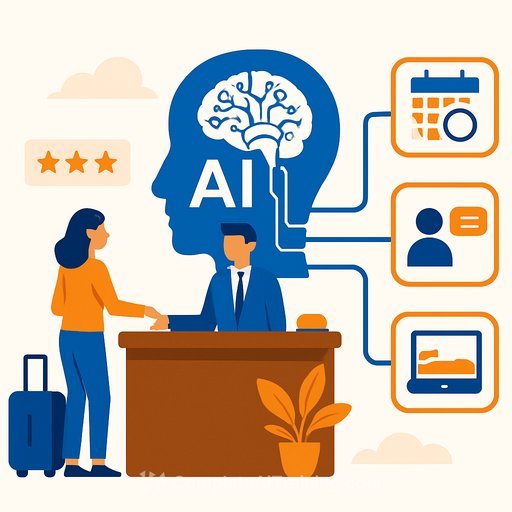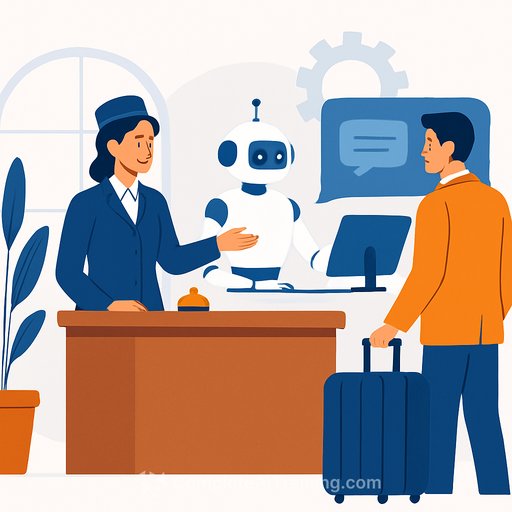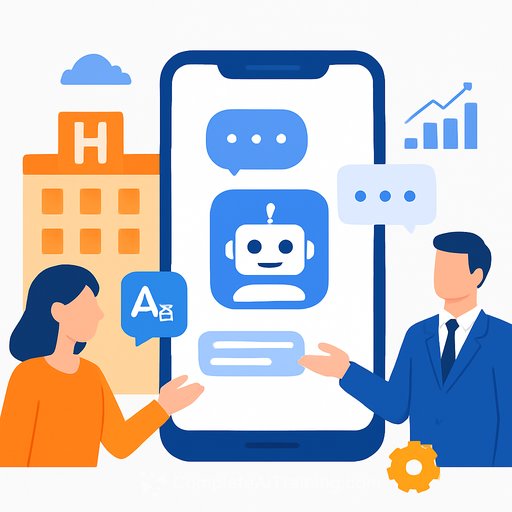Beyond the Front Desk: How Cloud, Mobility, and AI Are Redefining Hospitality
The most useful changes in hotels rarely arrive with a splash. They show up quietly, then compound across workflows, teams, and guest touchpoints. Right now, three shifts are converging: mobile tools have untethered staff, cloud infrastructure has matured, and AI is threading through daily operations. Alone, each is helpful; together, they reset how we run hotels.
Industry reporting has been clear: technology priorities are moving from one-off tools to connected ecosystems that improve outcomes end to end. That's the mindset to adopt and scale. Skift has covered this trend extensively.
From workstation to welcome
Mobility turns service from a counter transaction into an anywhere interaction. With cloud apps on consumer-grade tablets, teams can greet, check in, and resolve issues on the move. No lines, fewer handoffs, more human moments.
Picture a host meeting a guest at the door, completing check-in on the way to the room, and booking dinner before the elevator arrives. Faster for the guest, more fluid for the team, and better for revenue per stay.
The cloud foundation
True cloud PMS and POS are now the baseline. This isn't about chasing the newest toy; it's about uptime, speed, and flexibility. Cloud systems update in real time, connect cleanly through open APIs, and cut the limits of aging on-premise setups.
Cloud also accelerates improvement. You can test features without disruption, strengthen security with modern protocols, and roll out capabilities-loyalty, payments, messaging-without ripping out the plumbing each time.
AI is coming fast
AI is already useful for profile matching, preference prediction, review responses, and smart room assignments. Expect 10-20% efficiency gains on routine tasks once data and workflows are in order. But sequence matters.
If your PMS isn't cloud-based, APIs aren't open, or data hygiene is weak, AI will add noise and cost. Fix the foundation first. Then aim AI at friction: response automation, data cleanup, and decision support-not headcount replacement.
Make it work: the right sequence
- Modernize the core: Move PMS (and key POS modules) to cloud. Standardize integrations. Enforce data standards and permissions by role.
- Empower the team: Redesign workflows for mobile-first service. Train on scenarios, not features. Measure adoption and guest outcomes, not logins.
- Apply AI where it removes friction: Start with guest messaging, review responses, profile merge/match, and room assignment suggestions. Prove value with time saved and higher satisfaction.
90-day field plan
- Days 0-30: Audit tech stack, map top 10 guest interactions, capture baselines (check-in time, response SLAs, upsell rate, service recovery time, staff task time).
- Days 31-60: Pilot mobile check-in/checkout and lobby reflow in one property or zone. Stand up secure API connections. Train a cross-functional "mobility squad."
- Days 61-90: Turn on AI for templated guest replies and review responses, enable profile unification, and test AI-assisted room assignments during peak arrivals.
What to watch out for
- Launching AI before fixing core infrastructure and data quality.
- Rolling out tools without staff buy-in, training, and a feedback loop.
- Pursuing personalization with no clear guest benefit or consent.
- Chasing cost cuts at the expense of service improvement.
Metrics that matter
- Average check-in time and queue length variance.
- First-response and full-resolution time for guest messages.
- Upsell/ancillary conversion rate and attachment per stay.
- Profile match/merge accuracy and duplicate reduction.
- Review response SLA and sentiment shift post-response.
- Staff mobile adoption rate and time returned to guest-facing work.
Why this matters
The real upside isn't just operational efficiency-it's distinct guest experiences at scale. Mobility frees associates from screens. Cloud keeps everything connected and reliable. AI removes drudgery so people can deliver care where it counts.
Luxury brands like Peninsula prove that attentive, fluid service wins. With the right foundation, select-service properties can deliver their own version-consistent, personal, and efficient.
Bottom line for 2025
The hotels that win won't be the ones with the flashiest demos. They'll be the ones that make guests feel seen, supported, and remembered-using mobile, cloud, and AI as quiet enablers, not the main event. Do the basics right, sequence your moves, and let great service take center stage.
If you're building team skills around AI-driven workflows, see curated AI courses by job for structured upskilling paths.
Your membership also unlocks:






